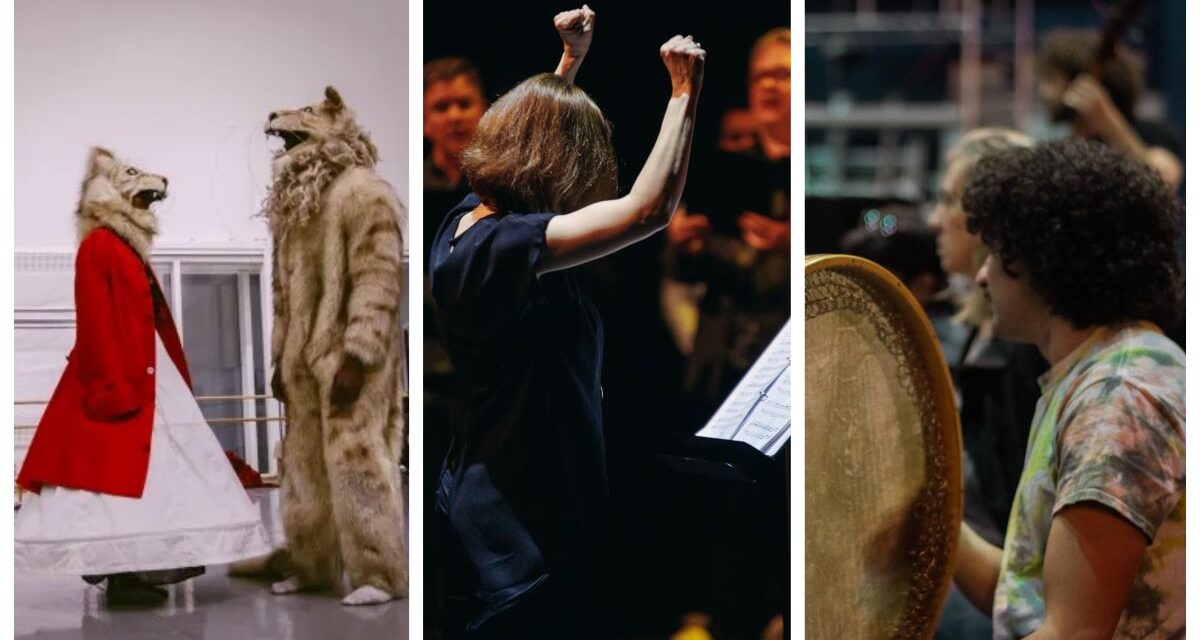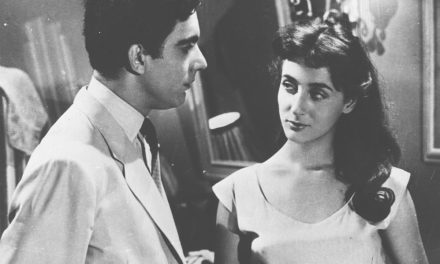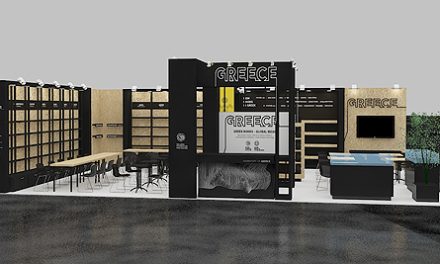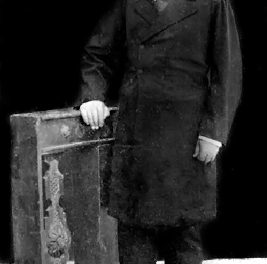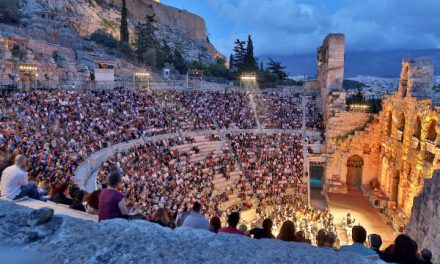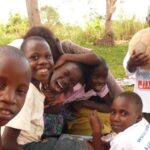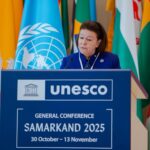Each year, the Greek National Opera’s Learning & Participation Department launches a diverse array of educational and social programs. These programs integrate opera, music, dance, and visual arts into a series of artistic, experiential, and participatory learning activities; they are designed to engage a wide range of participants, including children, teenagers, schools, adults, seniors (65 and over), unaccompanied minors from accommodation facilities, inmates across Greece, individuals with or without disabilities, socially vulnerable groups, as well as amateur and professional artists from Athens and beyond.
An integral part of GNO’s learning and participation initiatives are their intercultural education projects, i.e. Co-OPERAtive: an intercultural opera hub, the Intercultural Choir and the Intercultural Orchestra, all of which have been active this season.
A “ΣUΠΕR” Co-OPERAtive
Co-OPERAtive, an intercultural opera hub for a mixed group of Athenian teenagers and minor asylum-seekers from all over Attica, returns for a fourth year with the production of music theatre performance “ΣUΠΕR,” which is asking us “which superhero did you want to be as a child, and which one would you like to be now?” This question marks the beginning of a series of consecutive transformations into characters with superpowers. Numerous biographical fantasy references compose a non-linear collective story of allegorical and literal transitions from one state to another, through which we map our own self: both the personal utopia and the inner reality of each one of us.
“ΣUΠΕR” is directed by Argyro Chioti, with music composed by Panos Iliopoulos and texts written by the participants, Athenian teenagers and unaccompanied asylum-seeking minors from Kinoniko Ekav and European Expression. Speaking to Greek News Agenda* on her experience directing this very special project, Argyro Chioti said: “Co-OPERAtive is a complex and demanding undertaking in many respects. I could discuss at length the specific issues we faced, such as the difficulty of establishing communication with teenagers due to language barriers, their almost complete inexperience on stage or with any creative theatrical process, and the ephemeral nature of their commitment—most teenagers are in a state of waiting to move elsewhere. Additionally, there were various challenges related to differences in religious, social, or cultural perceptions. And of course, the project’s desired outcome, which was that the theme, text and music of the performance would emerge from the participants themselves.
That is what I can summarize as far as the complexity of the workshop is concerned; I wish to focus more on what I found to be most essential, which I tried to learn and respect – with the absolutely close and in-depth collaboration of the rest of the members of the Co-OPERAtive artistic team (Eleni Moleski, Katerina Gevetzi, Nikos Ziaziaris, Panos Iliopoulos and Pavlos Thanopoulos) – and it is the following question: How do you listen to these individuals without them speaking? How do you elicit responses without coercion? How can one tap into the creative power of the theatrical experience by building on something universal and common to all people and teenagers, giving each one with the space they need, without touching on their – often unimaginable– existential wounds, or falling into the trap of pity, or surface-level approaches such as pseudo-superiority or superficial sympathy?
How do you listen to what the other person would like to tell you on stage, without them saying it to you?
With a playful intent, we ended up with the world of ΣUΠΕR, the theme of hybrid superheroes in a dream circus and the couplet that the teens sing in chorus often during the performance, and which I could say encapsulates the absurdity of the whole experience and of our world in general:
‘Everything has gone well and we are getting closer to our dreams.
We haven’t changed course.’”

“ΣUΠΕR”’s composer, Panos Iliopoulos told Greek News Agenda*: “I was amazed by the energy the kids brought to our rehearsals, and how we collectively managed to overcome major obstacles, such as verbal communication; there is no common language between us, so non-verbal codes emerged, a process that of course was greatly aided by the musical aspect of our project.
My approach to composing the music for “ΣUΠΕR” involved combining elements from the vocabulary of contemporary music with simple melodies, rhythmic speaking and recitation, so as to make it possible for everything to be sung and performed by children from diverse cultural backgrounds and varying levels of musical education ―after all, the children were not required to pass any auditions in order to be accepted into the program: the only requirement was their enthusiasm and love for music and theater.”
Speaking to “Reader” website, Eleni Moleski, head of theater workshops for Co-OPERAtive and responsible for editing the texts for “ΣUΠΕR”, noted: “Most of the children answered that when they were younger they wished they had a super power that would make them stronger or faster. But now, they wish they had the power to change things not only for themselves but also for the world around them, their family and their country. Still others said that they now admire people who have inner strength because they want them to feel confident and not be afraid to be themselves. The strongest desire was summed up in the phrase “I don’t want anything. I just want to be myself.” This need for acceptance of ourselves, by ourselves, and by those around us is a struggle for all us, from childhood through our teenage years and into adulthood.”
The performance “ΣUΠΕR” will take place on Friday 31 May 2024 at the Greek National Opera Alternative Stage at the Stavros Niarchos Foundation Cultural Center. Admission will be free for the public.
The intercultural choir
This year, for a seventh consecutive year, the Intercultural Choir will continue expanding its repertoire by combining songs from the world’s folk traditions with modern vocal music. The connection of the voice with the body, movement and improvisation, will become for yet another year the basic tools for musical co-creation and free expression. The first performance of the Intercultural Choir was given this December at the mountain village of Vamvakou in collaboration with the Vamvakou Revival project, as part of the Christmas Celebration Events organized with the support of the Stavros Niarchos Foundation. Another performance will be given this June 12 at the Greek National Opera Alternative Stage (more details to be published soon).
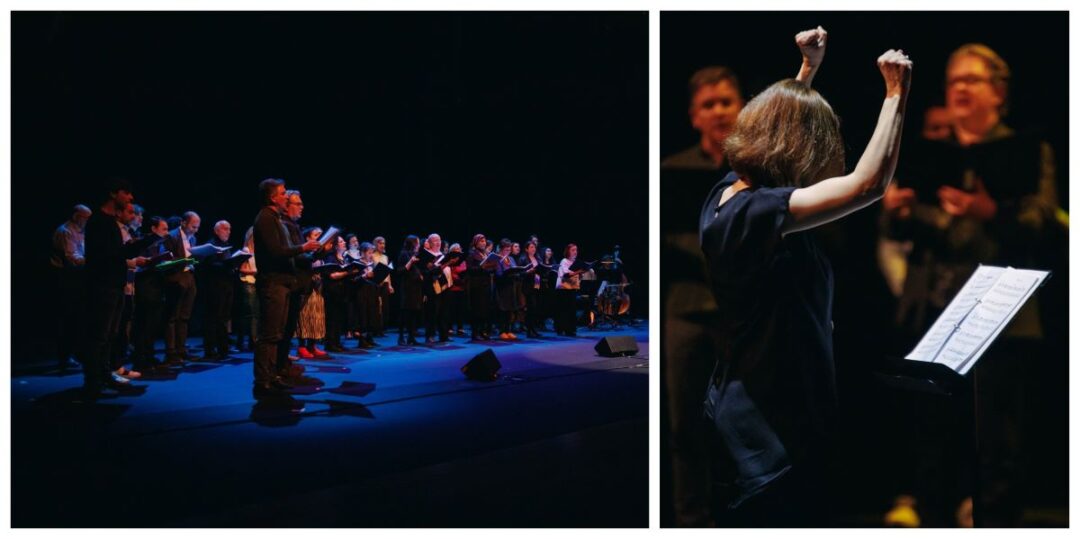
Greek News Agenda* spoke to Anna Linardou, the Intercultural Choir’s director on the project’s aims: “The Intercultural Choir is a project with educational, artistic, and social aims. Our choir this year consists of proximately 40 men and women from 14 different nationalities, ranging in age from 22 to 83 years old. Some of them are graduates of music universities, others are professional singers and actors, while others have no previous contact with music and singing. Some of our members found themselves in our country and in our group through difficult circumstances. Therefore, our goals are manifold. On one hand, we want to provide everyone, regardless of their musical background, with a fundamentally educational experience. On the other hand, we aim for the choir’s activities to have artistic significance and appeal. But our primary goal is creating and the feeding a collective that works creatively with material of its own heterogeneity; a collective that encourages, motivates, inspires, but also asks of each of us to make the necessary personal adjustments towards a common path.”
Asked whether participating in a music project helps them process possible traumas, ms. Linardrou emphasized that “the contribution of collective singing to human well-being is now well established. After all, the role of the song before its incorporation into performance, was to strengthen community bonds and thus empower individuals. Therefore, restoring this primary function of singing is a desideratum. The young refugees who participate bring so much positivity and have such commitment to the group, that is definitely an indicator that something good is happening. But I don’t know if this is enough to process a deeply traumatic experience…”

Responding on how elements from the diverse cultural backgrounds of the participants are incorporated into the choir’s musical repertoire, ms. Linadrou explains: “First of all, we seek to achieve a multicultural repertoire and to include songs from the countries of origin of our members. Furthermore, our approach to the material is based on the criterion of vocal pluralism. That is, the aim is not to adapt traditional songs to the dominant vocal pattern of Western-style choirs, but instead to include many different vocal idioms and timbres. We do not desire vocal homogenization, but rather the exploration of the diversity of one’s own voice through the voices of others”.
Finally, when we ask her about a special moment she would like to share with us, ms Linardou replies: “They are many and touching. Most of them I can’t share because they belong to the group. What I can share is my own feeling. I feel truly grateful to have the privilege of working with these people. They are a source of inspiration, motivation, and of valuable personal reflection.”
Intercultural Orchestra
The Intercultural Orchestra continued its journey through world music, further enriching its palette of traditions, styles, and timbres. Having evolved into a high-class ensemble since its inception in 2018, the orchestra will once again create new musical experiences this year with the steadfast goal of showcasing music as a universal language of communication and connection among people. This season, the orchestra welcomed new members and expanded its exploration to an even broader range of musical traditions.
In 2024, the Intercultural Orchestra participated in the Greek National Opera’s Opera’s 2nd Sacred Music Festival during Easter and concluded 2023 with a remarkable concert at the Parnassos Literary Society in December.
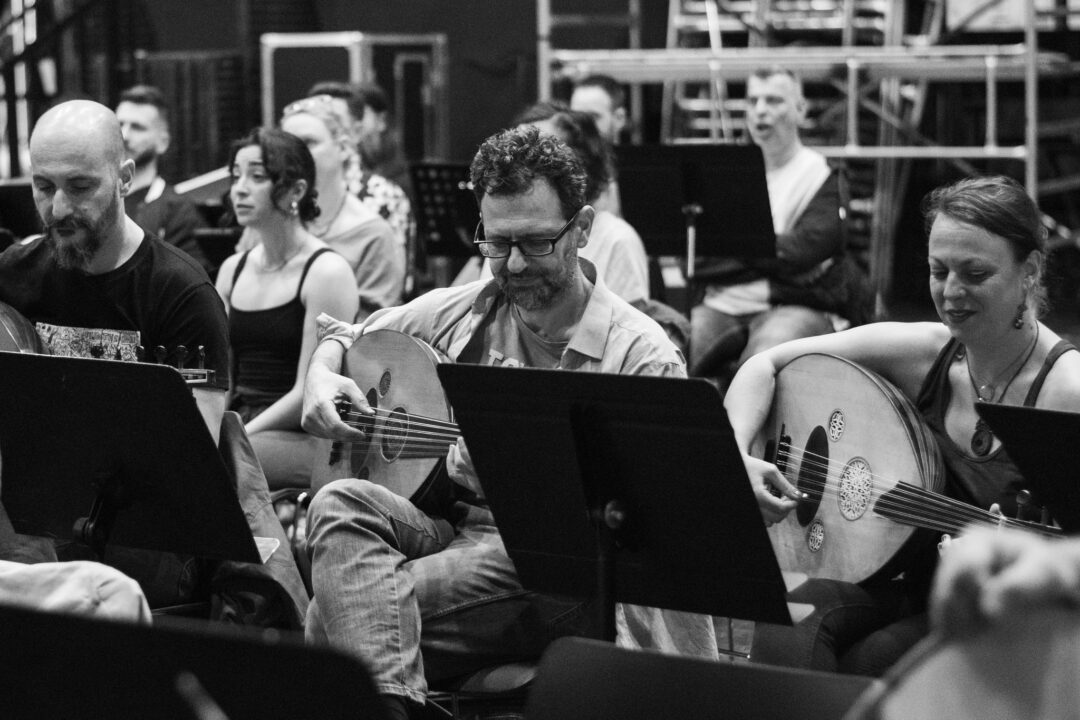
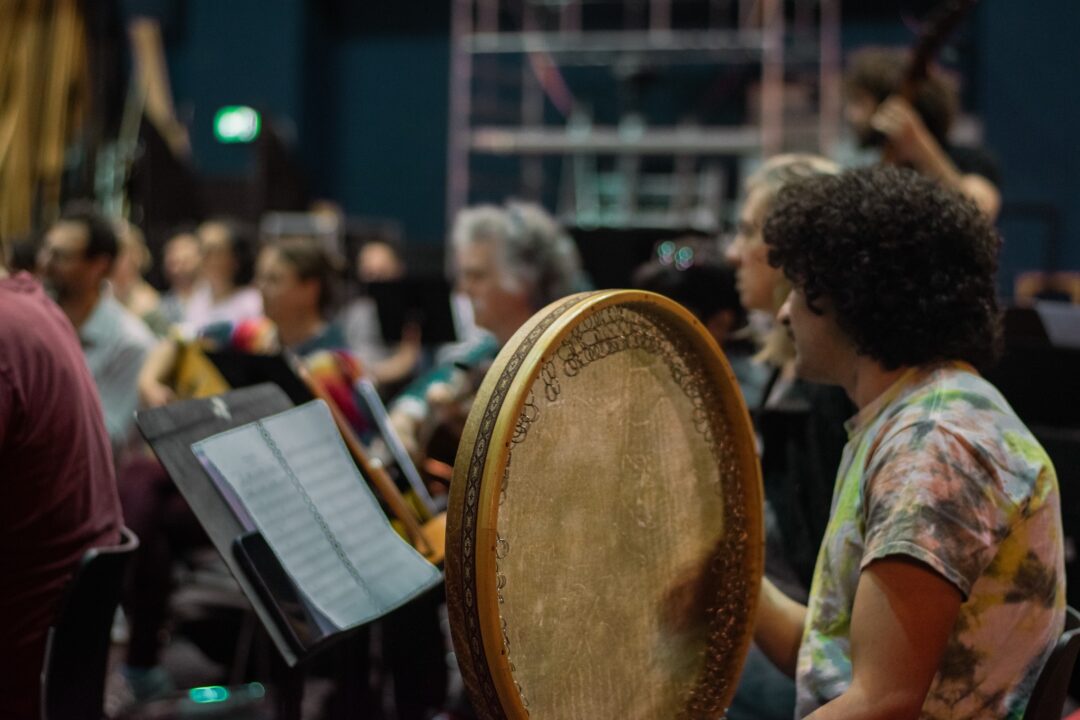
Read also from Greek News Agenda
- Composer and harpsichordist Panos Iliopoulos on his (unorthodox) approach to music making
- The Greek National Opera pays tribute to Maria Callas
- The Greek National Opera celebrates its 80th anniversary
*Interviews to: Ioulia Livaditi
TAGS: ARTS | COMMUNITY | INTERCULTURAL | MUSIC | OPERA | REFUGEES

